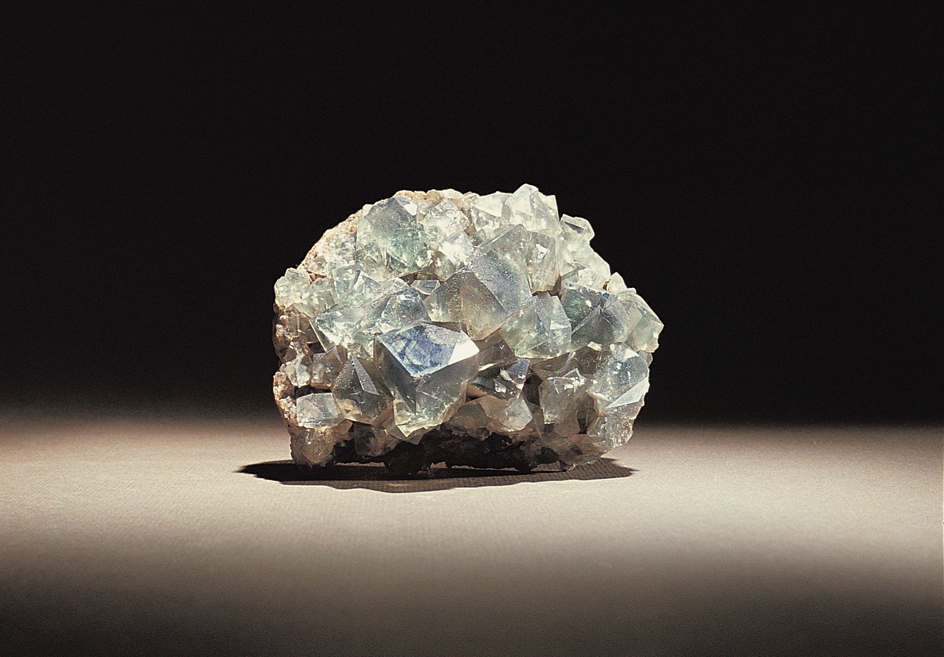Fluorite << FLOO uh ryt >>, also called fluorspar or fluor, is a common mineral composed of calcium and fluorine. In rare cases, other elements may substitute for the calcium in fluorite.
Fluorite is important in the production of aluminum, steel, and hydrofluoric acid, a chemical used in manufacturing fluorine. Some lenses and prisms used in optical instruments consist of fluorite.
Fluorite crystals have a glassy luster and are cubic or eight-sided in shape. Fluorite may be transparent and colorless when pure. It also can occur in many colors due to defects in crystal structure or to impurities. Fluorite will often fluoresce (give off light) when exposed to ultraviolet radiation.

Fluorite occurs widely in such rocks as granite, granitic pegmatite, syenite, and in ore veins. Fluorite crystals may also line the cavity of spherically shaped, hollow stones called geodes. Major deposits of fluorite are found in Canada, England, Germany, Mexico, and the United States.
See also Fluorescence; Fluorine.
